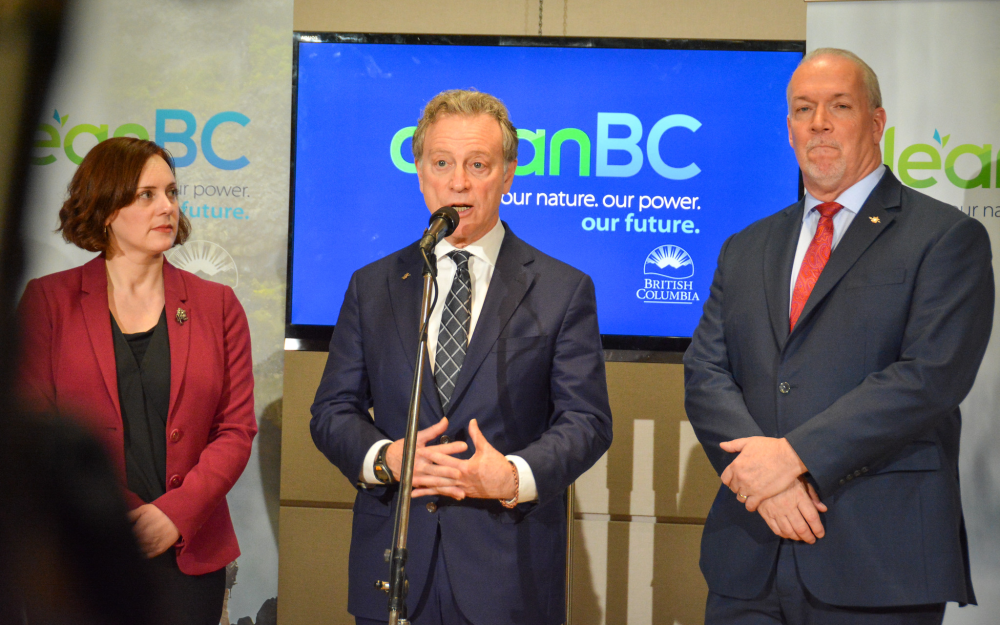VANCOUVER / MUSQUEAM, SQUAMISH & TSLEIL-WAUTUTH TERRITORIES — Pembina Institute directors Karen Tam Wu and Josha MacNab made the following statements in response to the B.C. government’s introduction of climate accountability legislation:
“By strengthening the Climate Change Accountability Act with first-of-its-kind legislation in North America, the B.C. government is showing real leadership in responding to the climate emergency. The government’s willingness to be held accountable for its progress on climate change is worthy of commendation.
“We applaud the government for taking concrete steps to break the cycle of setting goals and missing them. These changes will allow anyone to track the province’s progress in the short term, including by sector, and help ensure we stay on track toward achieving B.C.’s long-term vision. We can no longer afford to miss our climate targets.
“The improved Climate Change Accountability Act provides transparency on B.C.’s progress toward climate goals, regardless of the government in power. With this legislation, British Columbians will have greater confidence that gains made today are safeguarded tomorrow and built upon moving forward.”
— Karen Tam Wu, B.C. director, Pembina Institute
“Last week, the majority of Canadians voted for federal parties committed to ambitious climate action. Accountability mechanisms are an important tool to ensure we make real progress on a high-priority issue for Canadians.
“The reforms put forward by the B.C. government should form a blueprint for transparency and accountability on climate action at the federal level. This will be an essential step in moving past partisan climate politics, supporting growth and investment in a thriving clean economy, and ensuring that Canada is doing its fair share to keep the rise in global temperatures below 1.5 degrees Celsius.”
— Josha MacNab, national strategy director, Pembina Institute
The improved Climate Change Accountability Act provides transparency on B.C.’s progress toward climate goals
tweet this
Quick facts
- B.C.’s carbon pollution in 2017: 64.5 million tonnes (carbon dioxide equivalent).
- B.C.’s carbon pollution target for 2030: 38.9 million tonnes.
- B.C.’s carbon pollution target for 2040: 25.9 million tonnes.
- B.C.’s carbon pollution target for 2050: 13 million tonnes.
- To meet its 2030 target, B.C. needs to reduce carbon pollution by 25.6 million tonnes.
[30]
Find photos for editorial use: flickr.com/pembina
Join the conversation on Twitter: @Pembina
Contact
Stephen Hui
Senior communications lead, Pembina Institute
778-987-7654
stephenh@pembina.org
Tw: @StephenHui
Background
Open letter: Embedding transparency and accountability in B.C. climate action
Open letter: CleanBC: An accountability model for the Pan-Canadian Framework
About the Pembina Institute
The Pembina Institute is a non-profit think-tank that advocates for strong, effective policies to support Canada’s clean energy transition. We have offices in Vancouver, Calgary, Edmonton, Ottawa, and Toronto. Learn more: www.pembina.org




